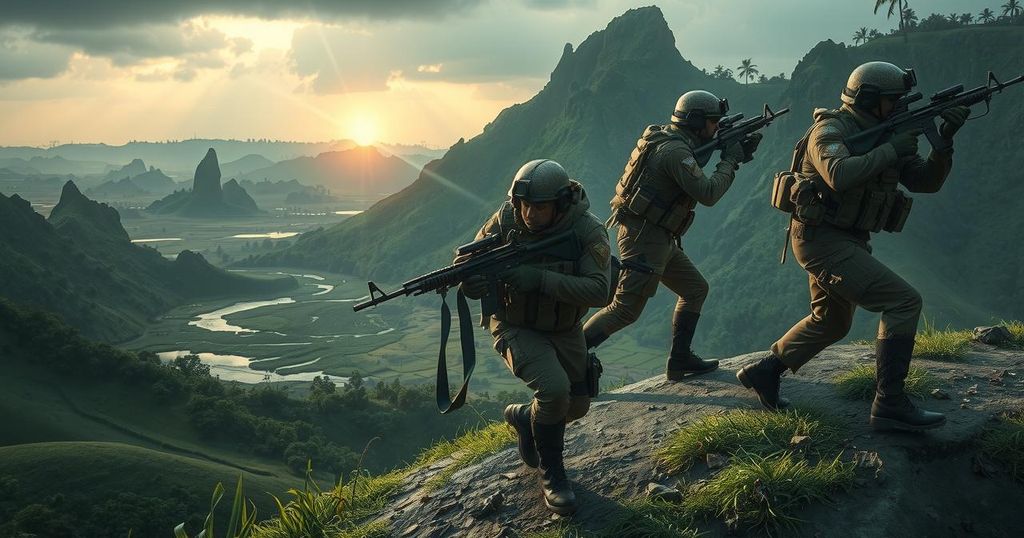Congo’s government forces have regained control of towns in eastern provinces, though fighting persists with some areas still held by rebels. The conflict, ongoing for decades, has resulted in massive displacement and humanitarian challenges exacerbated by limited aid access, particularly in regions dominated by the M23 rebel group.
In eastern Congo’s North and South Kivu provinces, government forces have successfully recaptured several towns previously occupied by armed groups, despite continuing clashes and rebel advances in other regions. The Congolese army spokesman confirmed the recovery of key towns including Ngungu, which lies near Goma, the provincial capital. Although these victories are noted, many areas remain under the control of rebels, contributing to ongoing instability and humanitarian crises in the region.
Eastern Congo has experienced prolonged conflict, with over 100 armed groups competing for control of territory, particularly in the mineral-rich areas adjacent to Rwanda. This enduring turmoil has displaced over 7 million individuals, with 100,000 fleeing their homes just this year. While some towns have been secured by government troops, concerns persist regarding the safety of returning residents amid sporadic violence.
Despite the positive news regarding the recaptured towns, residents express apprehension about security. They report ongoing incidents of violence and fatalities, indicating that the situation remains precarious. The Congolese army attributes its recent successes to a coordinated military operation involving leadership from both provinces. However, the humanitarian response in the area is hampered by the increasing number of displaced persons seeking refuge and the lack of sufficient aid resources.
The M23 rebel group, which is the predominant force in the region, has been reported to have support from Rwanda, a claim that the Rwandan government denies. This complicates both military and humanitarian efforts, as access to many villages remains restricted due to clashes. Medical and humanitarian organizations are struggling to meet the needs of those affected, highlighting the dire situation on the ground and the challenges posed by the conflict.
Crisis response continues to be hindered by the lack of humanitarian personnel and facilities in the area, prompting concerns about the overall welfare of displaced individuals. The situation necessitates urgent attention to both military stability and humanitarian support.
The ongoing conflict in eastern Congo, particularly in the provinces of North and South Kivu, has a complex history that includes the involvement of numerous armed groups vying for control over lucrative mineral resources. The humanitarian crisis has escalated, displacing millions and creating dire living conditions for many in the region. Recent government efforts to reclaim territory from rebels reflect the ongoing struggle to restore peace and security, amidst accusations of foreign interference and a critical shortage of humanitarian resources contributing to the suffering of civilians.
In summary, while the Congolese government has made strides in recapturing towns from armed groups, the fight against ongoing violence and instability continues. Displacement remains a significant issue, compounded by a lack of humanitarian assistance in the region. The resilience of local populations amidst challenges reflects the critical need for enhanced security measures and support services to address the humanitarian crisis.
Original Source: apnews.com






